Best AI Tools For Academic Research & Writing

Kevin Gohil
Academic research is a very complex thing which involves much more than reading and writing. However, more to that, it involves gathering, organizing, and analyzing information; and secondly, ensuring that the citations are correctly managed. Handling such tasks can be overwhelming and time-consuming, especially when one is dealing with several tasks at the same time.
However, thanks to AI, a new generation of tools is now possible in order to make academic researches and writings easier and more streamlined. These best AI tools for academic research assist students, scholars, and researchers in their various activities, such as literature review and citation management, data analysis, and research discovery. The blog will discuss the top 20 best AI tools for academic research that are designed for academic ease, improved productivity, and better quality of writing. We've curated this list based on 2025 trends, focusing on ethical, academia-approved options that enhance workflows without replacing critical thinking.
Quick Summary
The research tools greatly change the way the academic work is carried out by making simple research tasks, increasing productivity, and improving the quality of writing. Some will assist researchers and students in finding relevant papers, organizing citations, improve writing, and even analyze complex datasets. Each tool specializes in a specific area such as citation management, research discovery, or assistance for writing, so it is important to choose one that best suits your requirements. This blog lists the top 20 AI tools, explains why they are on the list, some insight into pricing, ratings, and special features so that you can choose the right tool for your research.
AI Tools for Research: What Are They?
Academic research AI tools consist of software applications that use artificial intelligence to assist with different aspects of academic work. It ranges from finding relevant academic papers, organizing citations, and improving your writing. Some of the research tools include helping in literature reviews, carrying out the process of finding references and citations, summarizing the research article, and giving insights into complex data. The automation of mundane, time-consuming tasks encourages more time focused on data analysis and idea generation rather than being bogged down in routine administrative work.
Best AI Tools for Research
AI tools have revolutionized research by offering powerful solutions for data analysis, literature review, and automation. Tools like GPT for natural language understanding, Scite for citation analysis, and Zotero with AI integrations streamline academic workflows.
1. AssignmentGPT IO
AssignmentGPT IO is a tool that helps students and researchers generate and improve the quality of their writing on academic content. It will come in handy especially when drafting essays, research papers, or reports.
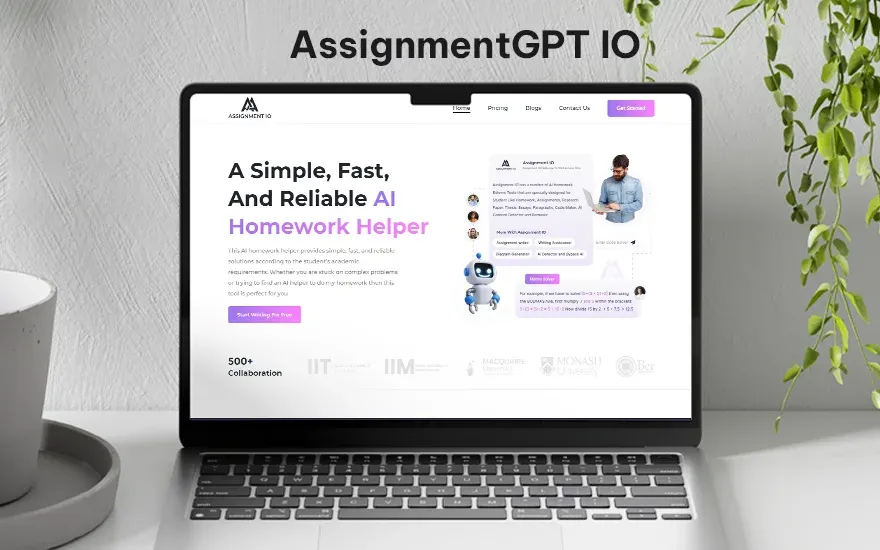
Why We Choose It
We choose it because AssignmentGPT IO boasts very promising feature profiles consisting of writing assistance, research of topics, and generation of citations. Due to advanced AI technologies, the given content is of greater quality, providing ideas corresponding to a topic that are well-built in one subject or another, making it an excellent tool for both students and academic professionals.
Pricing
- The premium features start at $9.99/month and include high-level writing help as well as deeper research capabilities.
2. Google Scholar
Google Scholar is a search engine for scholarly papers that allows a researcher to find articles, theses, books, patents, conference papers, and much, much more in many different disciplines.
Why We Choose It: Google Scholar is free and uses very little technicality. It happens to have access to a massive database of academic writing. This is its best position for deep analysis and research because most articles found here are free of charge and peer-reviewed.

Ratings and reviews: 4.8/5
Pricing : Free
3. Julius
Julius is really a very smart AI writing assistant, which helps researchers with literature review, summarizing academic papers, and even drafting research articles.
Why We Choose It: Julius is impressive with all its power for concise summarization and insights, which is really handy at literature review time. This tool saves a lot of time for researchers, and it makes sure that researchers can quickly assess whether a paper is relevant to their work.
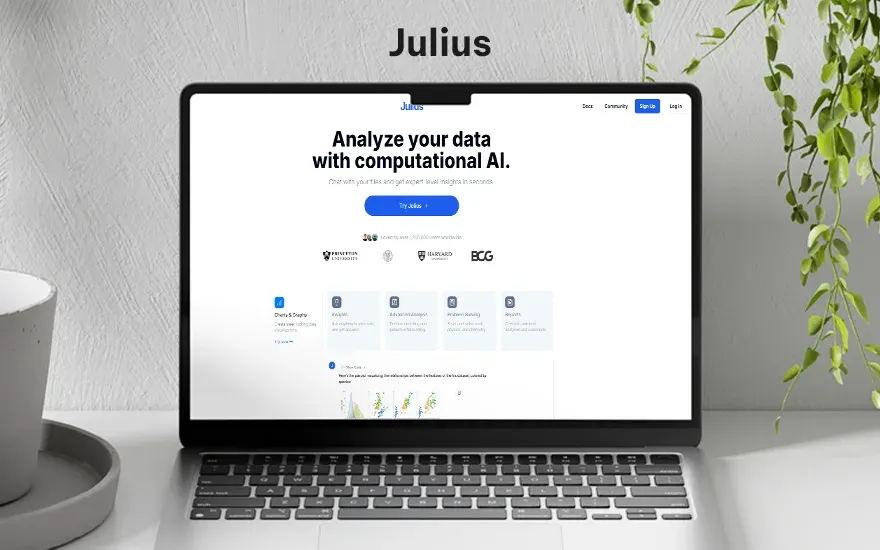
Ratings and Reviews: 4.5/5
Pricing: Paid subscription at $37/month.
4. Research Rabbit
Research Rabbit makes finding research papers much more streamlined because it recommends papers according to a user's existing library. Hence, through this method, the process of literature exploration becomes much more efficient and organized.
Why We Choose It: The uniqueness of Research Rabbit is in its "explore" option, which visualizes related papers in order for the users to dig deeper into any research topic to identify relationships among studies.
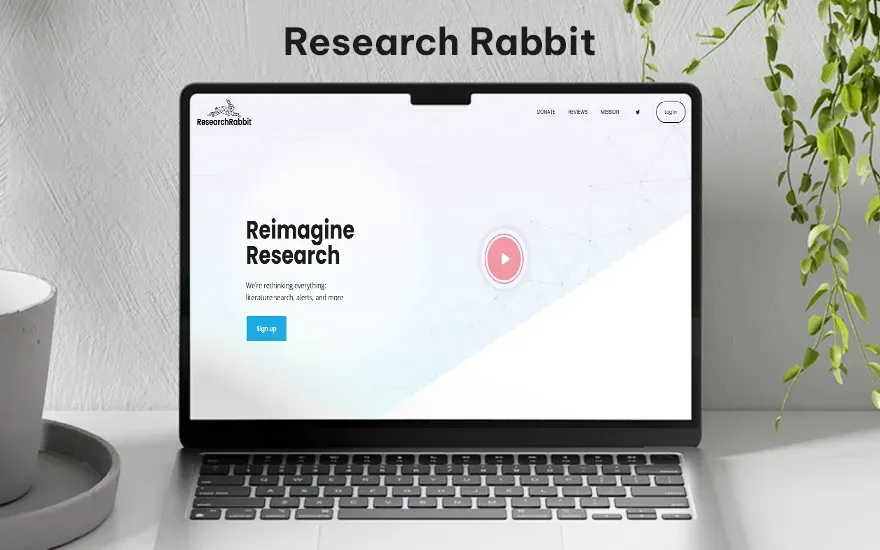
Ratings and Reviews: 4.6/5
Pricing: Free
5. Elicit
Elicit is an AI research assistant that can determine the important papers to look into, analyze data, and pull relevant information from multiple sources.
Why We Choose It: Elicit has now done something great when it comes to taking key data points from many sources. This makes it a perfect tool for systematic reviews and large academic projects. Saves much time on manual searching without making errors while collecting data.
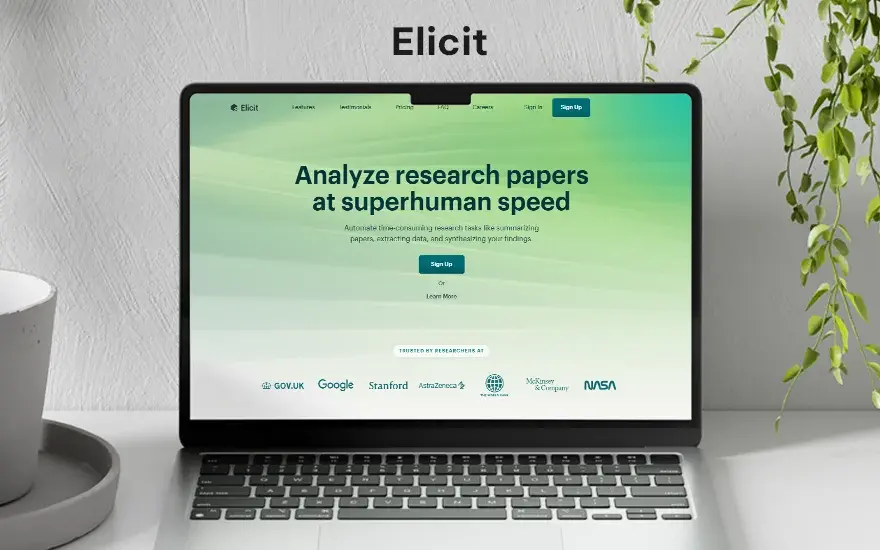
Ratings and Reviews: 4.7/5
Pricing: Free
6. Scite
Scite helps in deducing whether a scientific paper is supported or not by other research citations to give users contextual insights.
Why We Like It: For those who want to evaluate the quality and impact of research papers, Scite is the tracking tool because it tracks how many times a paper has been cited and if that paper is supported or rejected.
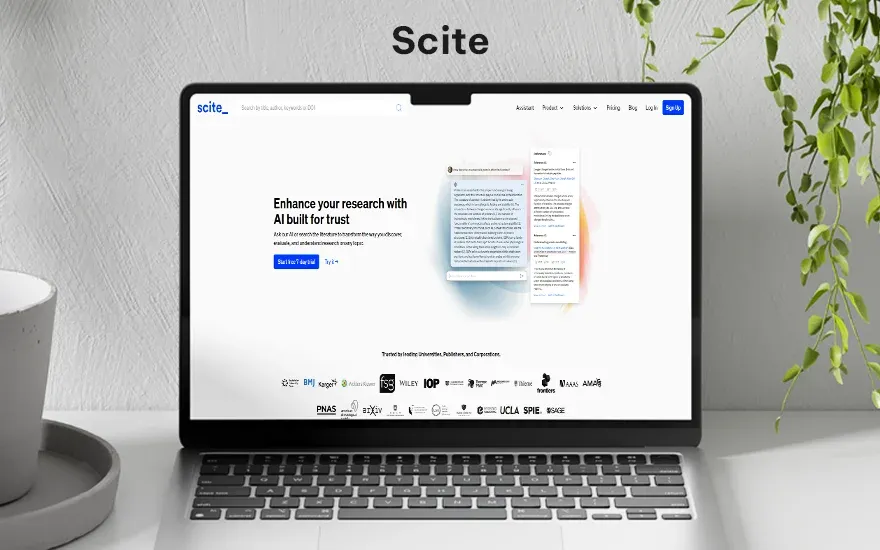
Rating and Reviews: 4.6/5
Pricing: Free and $5/month for premium version.
7. ReadCube Papers
ReadCube Papers is a literature management tool that has a cloud-based platform for managing the reading and research needs of users; thus, it helps people to better manage their papers, read them easily, and annotate the files more conveniently.
Why We Choose It: The software includes storing and therefore managing a large library of research papers; thus, it is a tool one cannot afford to miss if seriously carrying out research and making lots of notes right on the documents.

Ratings and Reviews: 4.4/5
Pricing: The basic subscription charge is $60 per year.
8. ChatPDF
ChatPDF enables individuals to have conversations with academic papers through a chatbot interface where people ask questions and then quickly extract key information from PDFs.
Why We Choose It: ChatPDF is an innovative choice for someone looking at a more interactive way of getting into academic papers. It simplifies the process of getting key insights from complex papers, especially useful for individuals in fast-paced research environments.

Ratings and Reviews: 4.3/5
Pricing: Free
9. Scopus
Scopus is considered to be one of the largest abstract and citation databases that include peer-reviewed literature, especially in sciences, technology, medicine, and social sciences.
Why We Choose It: Scopus is a highly reliable source for citation tracking; it has a huge database of peer-reviewed articles, which is priceless for research academics.
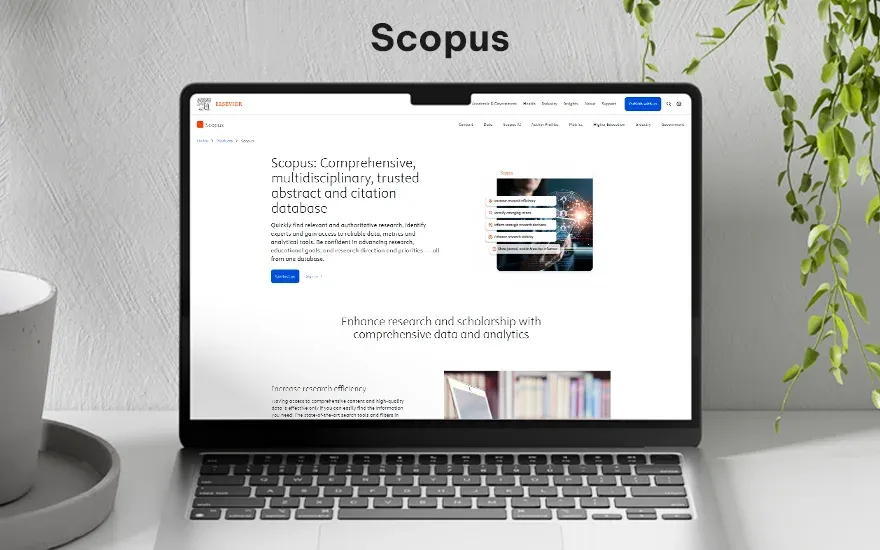
Ratings and Reviews: 4.9/5
Pricing: Paid subscription.
10. SciSpace
SciSpace is an AI research assistant which may be used to manage and handle all the academic researches while enhancing the quality of writing and the accuracy of citations.
Why We Choose It: SciSpace provides a rare mix of citation management and writing assistance, making it a versatile tool in both students' and seasoned researchers' arsenals.
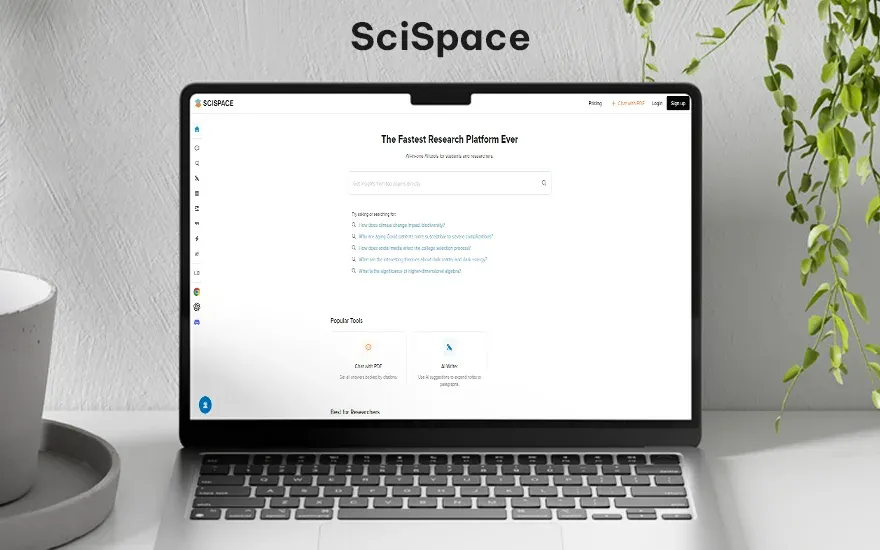
Ratings and Reviews: 4.6/5
Pricing: Free with premium features available.
Also read this article : Best Homework Help Websites for Students
11. Scholarcy
Scholarcy is that AI tool that generates concise summary and flashcards from academic papers, hence, the individual can easily scan through the key points from large chunks of texts.
Why We Choose it: Perfectly suitable for digesting a huge amount of information at one go. It gets the process of reviewing literature and studies much easier by producing summaries and take-aways.

Ratings and Reviews: 4.5/5
Pricing: Starting at $4.99 per month for premium features.
12. Knewton
Knewton is an adaptive learning platform, personalizing study materials and content based on the learning style of the student and his or her academic needs.
Why We Choose It: Knewton excels by offering academic content that is tailored specifically to you, making it suit really well any student who just wants to focus on a few weak spots.
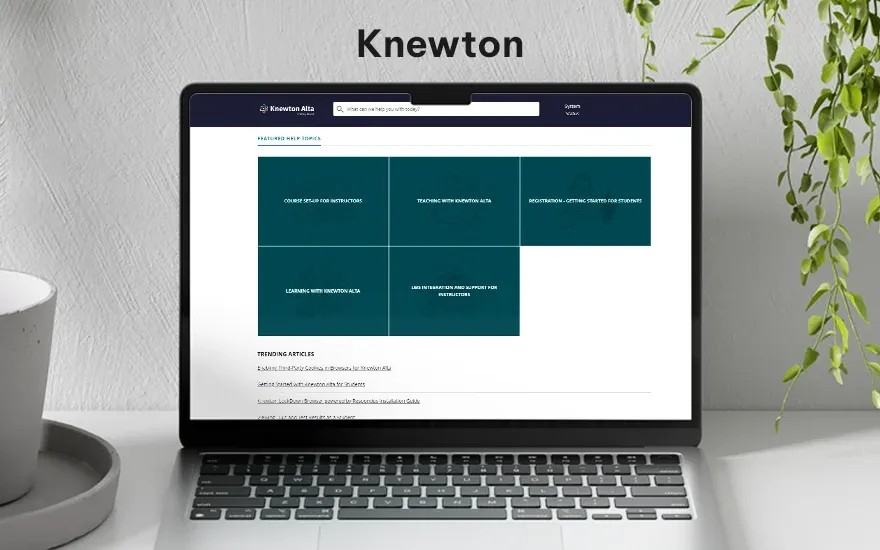
Ratings and Reviews: 4.2/5
Pricing: Paid subscription.
13. Tableau
Tableau is a very powerful platform that gives researchers the opportunity to interpret and present complex sets of data in very elegant ways.
Why We Choose It: Tableau is ideal for academics who have tons of data to be visualized and communicated, making it easier to analyze and present findings very clearly.
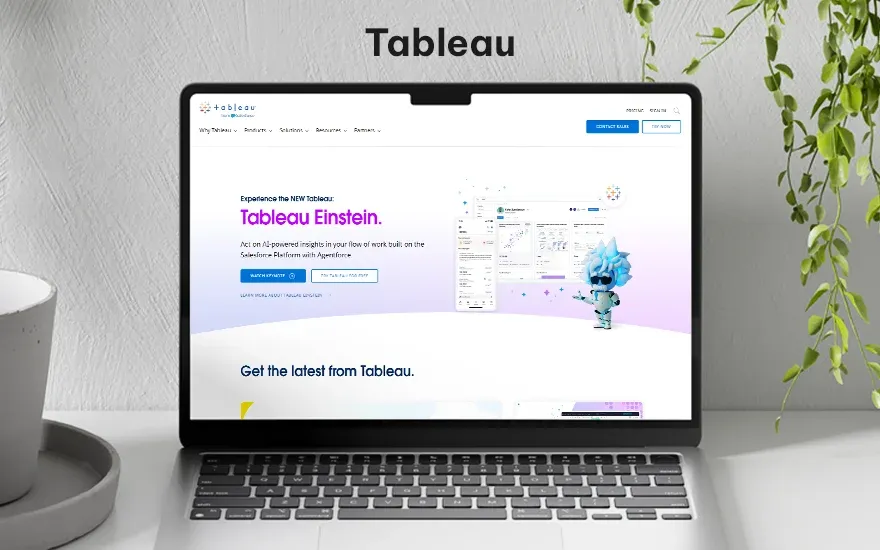
Ratings and Reviews: 4.7/5
Pricing: Paid subscription.
14. Semantic Scholar
Semantic Scholar employs AI in surfacing the most relevant academic papers. It can summarize key points and, with a network of citations, connect users to related research.
Why We Choose It: This tool is something special for its AI capability that makes sense of connecting other papers and citation recommendations. Pretty perfect in literature review.

Ratings and Reviews: 4.8/5
Pricing: Free.
15. Consensus
Consensus is an AI-driven search engine that scans academic papers and automatically pulls out essential insights for research decision-making purposes.
Why We Choose It: Ideal for summing up volumes of research in condensed form and allows for the easy isolation of important data points for informed decisions without having to skim each article.
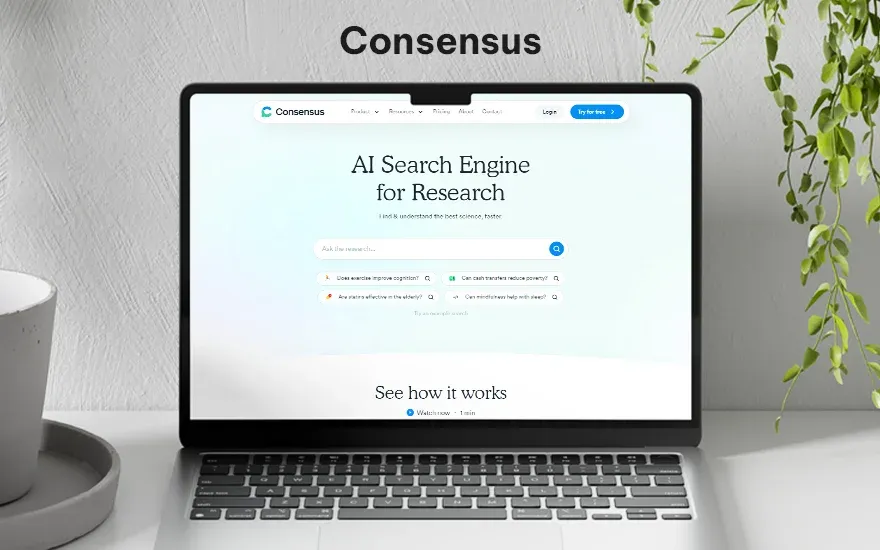
Ratings and Reviews: 4.6/5
Pricing: Free and some premium features will cost $8.99/month.
16. Mendeley
It is a reference manager as well as an academic social network. Through Mendeley, one can organize research papers, collaborate online, or find the latest trends in research.
Why We Choose It: Mendeley serves as a tool of citation management that should be applied in collaborative research, including seam integration with other research platforms like Microsoft Word for instant citing.

- Rating and Reviews: 4.7/5
- Pricing: Paid subscription
17. Connected Papers
Connected Papers is a resource that enables the researcher to view and browse relationships between academic documents for literature review, thus making it more dynamic and friendly in time. Why We Choose it: Perfect when tracing research trends and connections on a chosen subject with its visual presentation of related documents.

Ratings and Reviews: 4.5/5
Pricing: Free & Paid subscription at 3$/month.
18. Jenni
Jenni is an AI-based academic writing assistant, offering writing suggestions, structured content guidance and citation management in order to ensure that your academic papers are of the best quality.
Why We Choose It: Jenni is very effective for improving the flow and the quality of academic writing. It offers real-time suggestions, ensuring that your research paper flows logically and is well-cited.

Rating and Reviews: 4.3/5
Pricing: $30/month with premium features.
19. Paperpal
Paperpal is an AI academic writing assistant that enhances grammar and sentence structure and ensures the correct academic writing style for writers.
Why We Choose It: Paperpal is perfect for students and researchers with writing needs that need to shine after the academic writing submissions. It improves the clarity and readability of research papers.
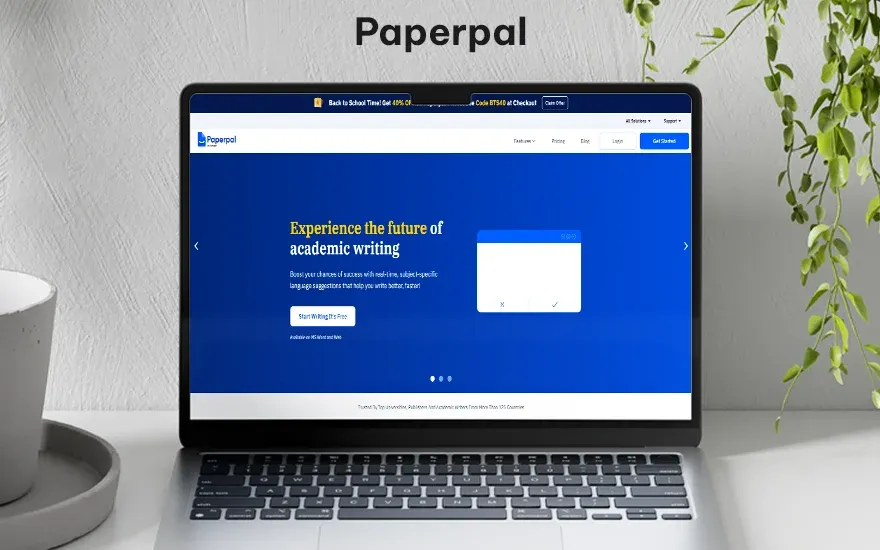
Rating and Reviews: 4.6/5
Pricing: Starting at $20/month.
20. Zotero
Zotero is free, straightforward, and allows the researcher to gather, organize, cite, and share research materials. It is an all-in-one reference management solution.
Why We Choose It: When it comes to citations or research papers, this tool is undoubtedly both easy and powerful, it can move into any web browser and word processor and therefore become quite quick and easy in citation management.
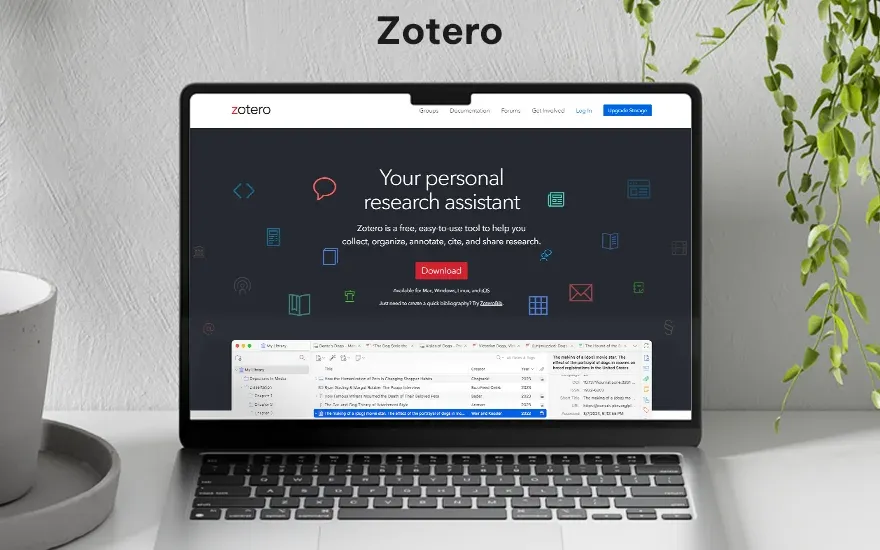
Ratings and Reviews: 4.8/5
Pricing: Free, with more storage capacity available to purchase.
Selecting an Appropriate AI Tool
The choice of the right AI tool for academic research would be related to one's specific requirements. For example, if you are focused on citation management and references, Mendeley or Zotero would be apt. Elicit and Scholarcy, for generating quick insights and summaries from academic papers. Large-scale literature reviews would be saved by Google Scholar, Research Rabbit, or Scopus. Thirdly, tools such as AssignmentGPT IO, Jenni, and Paperpal assist in writing and structuring an academic paper with the use of advanced writing assistance, and citation management. The very best tool is that which serves your research needs: perhaps for organizing references, locating new studies, or editing academic writing.
Conclusion
AI tools are changing the landscape of academic research with platforms that make complicated work easier, improve quality in writing, and organize citations. However, AssignmentGPT AI is the most inclusive tool for academic research and writing, offering features like research paper review, citation generation, and multilingual support in one seamless platform. Still, each tool here provides something different, so depending on your specific academic needs, you will want to pick the best one for you. What's really amazing with incorporating AssignmentGPT AI into your research is you'll save time and get to present better work, with assurance that you have the accuracy of your findings referenced and impactful.
FAQs
1. For a student, which AI is the best?
All these tools are highly recommended: Mendeley, to organize all of their citations; Google Scholar to find research; and AssignmentGPT IO for writing support.
2. Can I use AI tools to organize my citations?
Tools such as Zotero, and Mendeley have excellent functions for organizing and managing citations.
3. Do they offer free services?
Most AI research tool providers offer a free version, with extra advanced features coming at a fee.
4. How do I know which AI tool is right for my needs?
Think of the specific kind of need you have - citation management, research discovery, or writing assistance.
5. Do AI tools improve my writing?
Absolutely! Two of the most popular AI tools, Paperpal and Jenni, offer real-time suggestions to enhance academic writing.
Latest Blog's
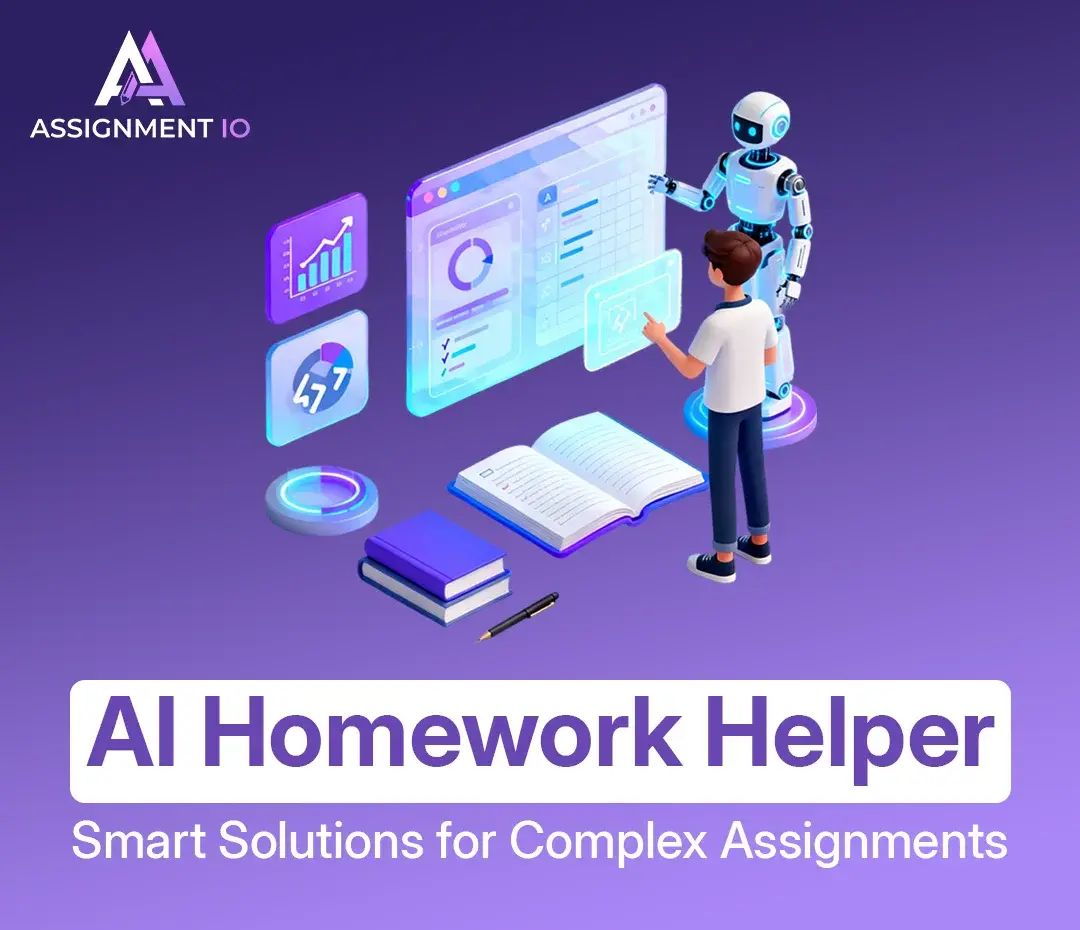
AI Homework Helpers offer fast solutions, personalized learning, and round-the-clock study support for students in every subject.

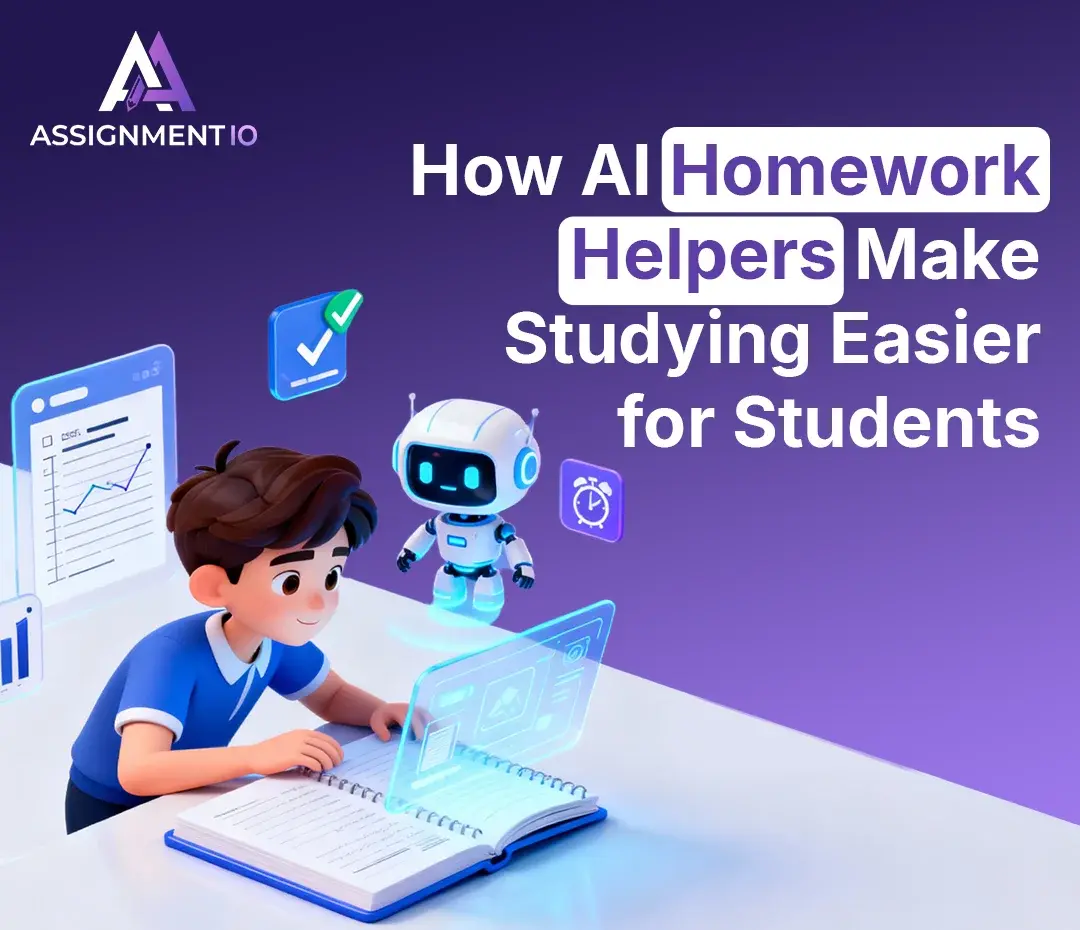
Master exams with superior scores and less study time. Step-by-step tips using ChatGPT, Khanmigo, and Quizlet.

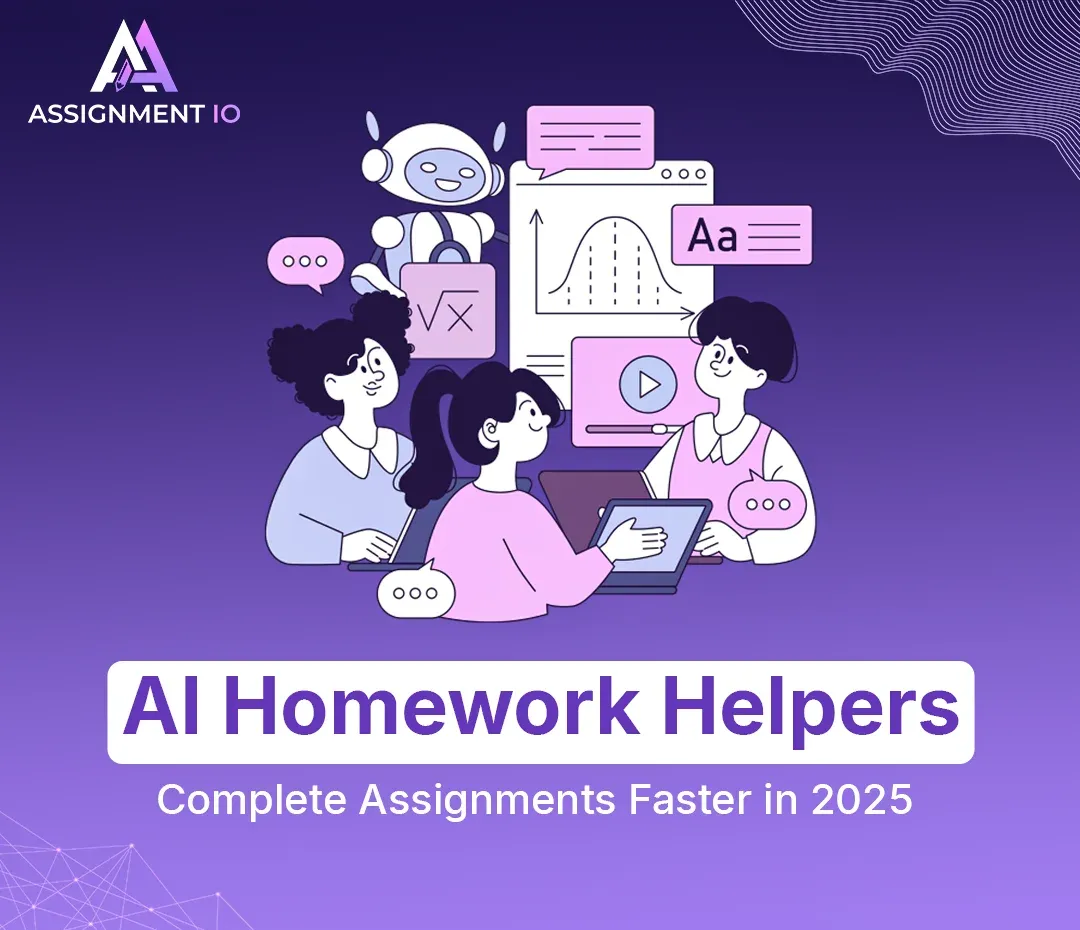
AI homework helpers streamline research, writing, and studying so students learn faster and complete assignments with less stress.

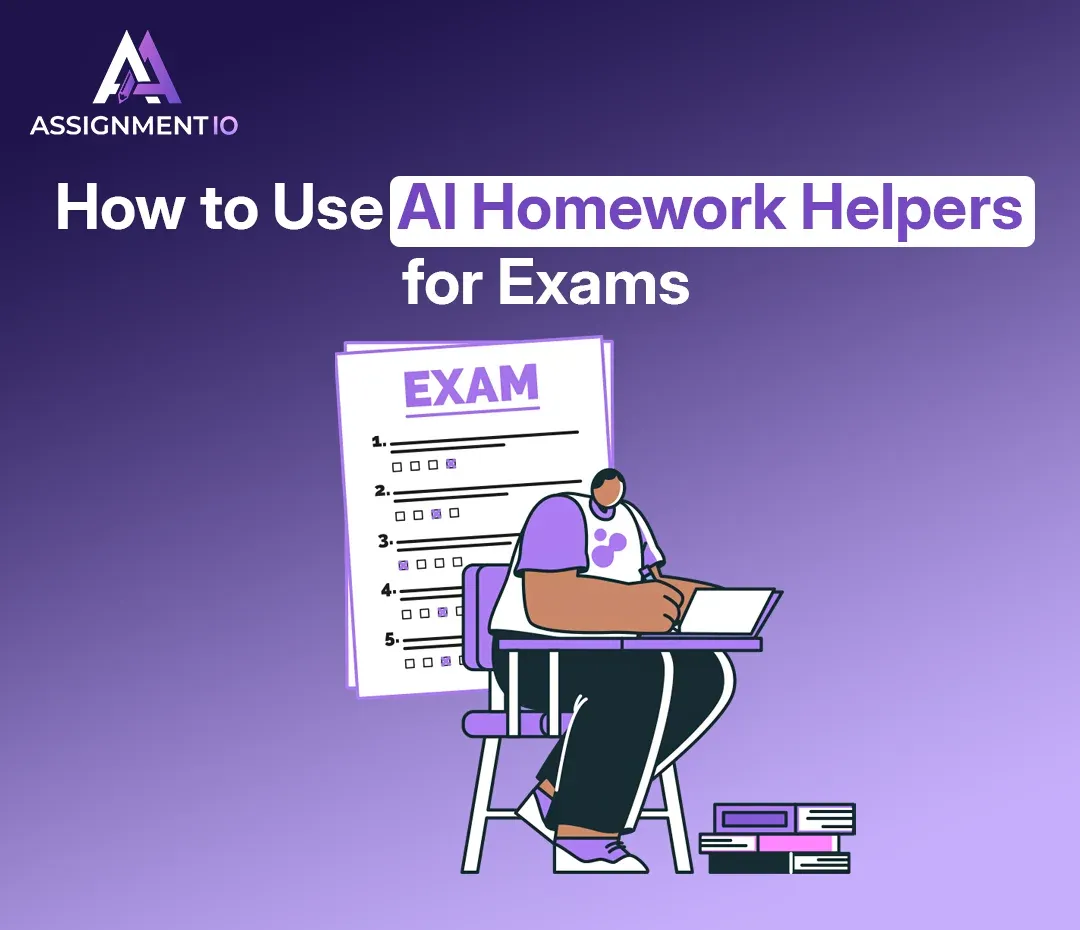
Master exams with superior scores and less study time. Step-by-step tips using ChatGPT, Khanmigo, Quizlet.


How deep learning makes AI homework helpers smarter, faster, and more personalized for students.

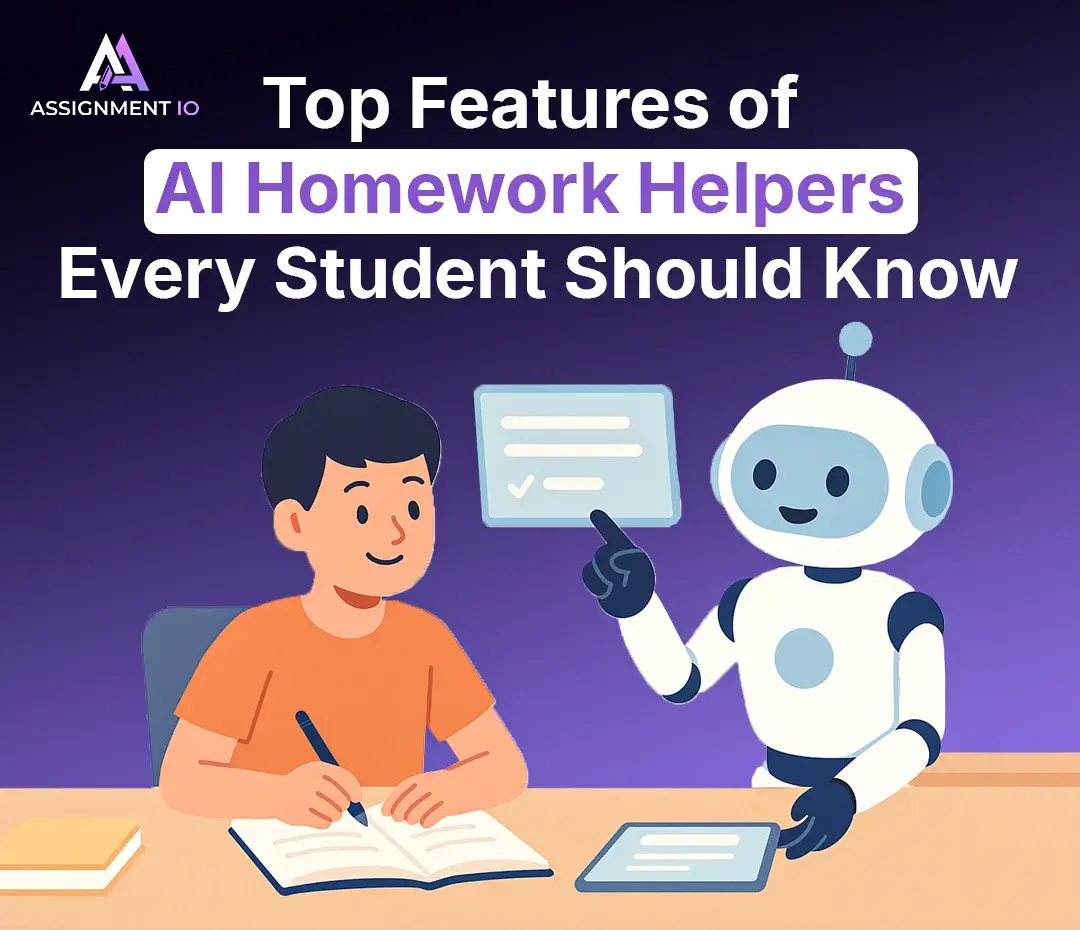
How AI homework helpers save time, boost learning, and provide personalized study support.

